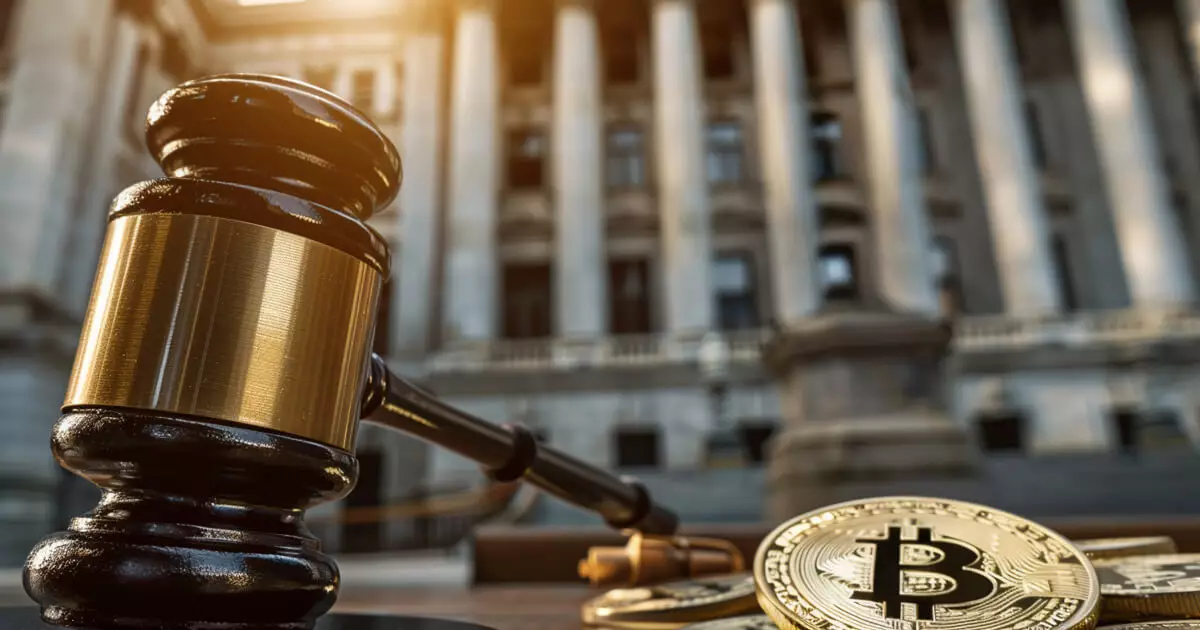The Satoshi Action Fund is taking significant steps to push for state-level protections concerning Bitcoin self-custody, employing tactics mirrored from the cannabis sector’s navigation through federal restrictions. This initiative is laid out against the backdrop of a burgeoning interest in Bitcoin and other cryptocurrencies, while also highlighting the complexities surrounding digital asset regulation in a landscape that remains fragmented at the federal level. The goal is to establish “safe haven” states where residents can enjoy legal clarity regarding their rights to hold and use Bitcoin.
Dennis Porter, the CEO and co-founder of the Satoshi Action Fund, argues that state law can provide a protective layer against potential federal overreach, stating that federal government is compelled to abide by states’ rights when federal statutes do not clearly dictate otherwise. His argument is anchored in the observation that the cannabis industry has flourished in states that have enacted protective legislation despite federal restrictions. Porter asserts that by creating these state laws today, Bitcoin enthusiasts can avoid the stagnation that has plagued the cannabis movement in its early years.
Porter draws on historical precedents such as women’s suffrage, civil rights, and same-sex marriage to fortify the argument for state-level activism. Each of these movements saw action at the state level that eventually pushed the federal government to respond, emphasizing that local successes can influence national policy. Furthermore, Porter points to research indicating that vigorous activity at the state level often compels federal action, suggesting a strategic roadmap for advancing Bitcoin rights.
However, critical voices in the legal community caution against overly optimistic interpretations of state-driven initiatives. Attorney Joe Carlasare emphasizes that federal law supersedes state law in most circumstances and labels the analogy between cannabis and Bitcoin as somewhat tenuous. While both face federal scrutiny, Carlasare contends that the cannabis industry has thrived not because of state laws per se but rather due to a lack of federal enforcement against minor possessory offenses.
In the pursuit of safeguarding Bitcoin rights, Pennsylvania has recently garnered attention with the introduction of House Bill 2481, also referred to as the “Bitcoin Rights” bill. This bipartisan measure aims to affirm residents’ rights to self-custody their digital assets, as well as creating frameworks for taxing these transactions. The bill’s passage through the House of Representatives with a notable 176-26 vote showcases a legislative commitment to proactively addressing challenges posed by unclear federal laws.
Positioned as a vital swing state, Pennsylvania—with an estimated 1.5 million crypto owners—symbolizes a strategic focal point in the ongoing conversation about Bitcoin’s place in the financial ecosystem. The potential enactment of this bill could set a precedent for other states, motivating them to roll out similar protective measures while federal agencies like the SEC and CFTC contemplate how to regulate digital assets.
Despite this momentum, obstacles remain due to the overarching principle of federal supremacy. Legal experts warn that federal pre-emption could invalidate state laws designed to protect Bitcoin users should the government decide to enforce its stance vigorously. It is essential to recognize that while state-level advancements in Bitcoin rights are promising, they do not operate in a vacuum; ongoing federal deliberations play a significant role in shaping the operational environment for digital asset holders.
As Bitcoin continues to gain traction among various demographics, the efforts to create a legally sound framework at the state level may ultimately inspire larger shifts in federal policy. The growing advocacy for state-level protections reflects a wider movement towards integrating cryptocurrencies into the mainstream financial system, yet it necessitates a cautious navigation through the current legal infrastructure.
The evolving landscape of Bitcoin regulation highlights the importance of both state and federal dynamics. While initiatives like the Satoshi Action Fund and legislative endeavors in states such as Pennsylvania signify a proactive approach to addressing the legal uncertainties of cryptocurrency, the interplay with federal authority will undoubtedly shape the future of digital asset rights across the United States. The outcome of these state-level advocacy efforts will serve as a litmus test for the viability of self-custody and ownership of Bitcoin in an increasingly digital world.













